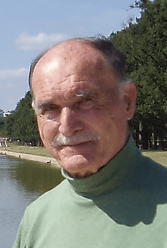Brian Tierney (medievalist) facts for kids
Quick facts for kids
Brian Tierney
|
|
|---|---|

Bryce and Edith M. Bowmar Professor in Humanistic Studies Emeritus, Cornell University
|
|
| Born | May 7, 1922 |
| Died | November 30, 2019 (aged 97) |
| Citizenship | U.S. |
| Alma mater | Pembroke College, Cambridge |
| Known for | Medieval church history, church law, and political theory |
| Scientific career | |
| Fields | Historian, University Professor |
| Institutions | Cornell University |
Brian Tierney (born May 7, 1922 – died November 30, 2019) was a famous historian who studied the Middle Ages. He was known for his deep knowledge of the history of the church and law during that time. He taught at Cornell University for many years.
Tierney was an expert on how the medieval church and governments worked together. He also studied how their interactions shaped Western societies. His work helped people understand important ideas about church law and political thinking. He wrote many books, including Liberty and Law: The Idea of Permissive Natural Law, 1100-1800. He continued to work on history until he passed away.
Contents
Brian Tierney's Early Life and Military Service
Brian Tierney was born in 1922 in Scunthorpe, an industrial town in Lincolnshire, England. He grew up during the 1930s, a time known as the Great Depression. He was one of four boys.
When he was 16, he left school to start working in Bristol, England. In January 1941, during World War II, his home was destroyed by a German air raid. Luckily, no one was in the house at the time.
In July 1941, Tierney joined the Royal Air Force (RAF). He served in Bomber Command until 1946. He became a Flight Lieutenant, which is a high rank. He trained as an air navigator, even spending some time in Miami, USA. After returning to England, he flew 30 missions over Europe in Wellington bombers. He then taught navigation for a year. Later, he flew 60 more missions on Mosquito planes with the elite Pathfinder Force. For his brave service, Tierney received the Distinguished Flying Cross and Bar.
Brian Tierney's Academic Journey
After the war, in 1946, Brian Tierney went to Pembroke College, Cambridge. He took a special shorter course for war veterans. He graduated in 1948 with top honors. He then began his advanced studies, focusing on medieval church law. His teacher was Walter Ullmann, a scholar who helped bring the study of medieval canon law to England.
In 1951, Tierney earned his Ph.D. His thesis was later published as a book called Foundations of the Conciliar Theory.
That same year, 1951, Tierney joined the faculty at The Catholic University of America in Washington D.C. He taught history there until 1959. Then, he became a Professor of Medieval History at Cornell University. At Cornell, he held important titles like Goldwin Smith Professor and the first Bryce and Edith M. Bowmar Professor in Humanistic Studies. He retired in 1992.
Brian Tierney's Research Interests
Brian Tierney's main work was about medieval church structure and political ideas. He tried to explain where Western ideas about government came from. He looked at both religious and non-religious ideas and how they influenced each other.
His first book, Foundations of the Conciliar Theory, was about a debate in the 1400s. This debate was about how the church should be governed. Some people believed that a general council of the church was more important than the Pope. Tierney showed that this idea was based on older church laws. His book was very important for historians. It even caught the attention of experts at the Vatican Council II in the 1960s. They found his research helpful for their own discussions about the church.
Another important book by Tierney was Origins of Papal Infallibility, 1150-1350, published in 1972. This book discussed the idea that the Pope cannot make mistakes when teaching about faith. Tierney argued that there wasn't much historical proof for this idea before the 1300s. He suggested it was first discussed by a few Franciscan monks. This book caused a lot of discussion among scholars. Tierney even had a respectful debate with a high-ranking official from the Vatican Library. Many scholars today agree with Tierney that discussions about papal infallibility started in the late 1200s and early 1300s.
Tierney also wrote major books on political thought. These include The Crisis of Church and State, 1050-1300 and Religion, Law and the Growth of Constitutional Thought, 1150-1650. He also explored ideas about natural law and natural rights in his books The Idea of Natural Rights and Liberty and Law. He gave many guest lectures, including important series at Queens University, Belfast, and Trinity College, Cambridge.
Awards and Recognitions
Brian Tierney received many honors for his work. He was the president of the American Catholic Historical Association. He was given honorary degrees from Uppsala University in Sweden and The Catholic University of America. In 1993, he received the Award for Scholarly Distinction from the American Historical Association.
He was also a member of several important academic groups. These include the American Philosophical Society, the British Academy, the Medieval Academy of America, and the American Academy of Arts and Sciences. He won the Haskins Medal in 2001 for a distinguished book in medieval studies. In 2003, he received the Quasten Medal of Catholic University for his excellence in religious studies.
Tierney also received research grants from several foundations. These include the John Simon Guggenheim Memorial Foundation, the Institute for Advanced Study, the American Council of Learned Societies, and the National Endowment for the Humanities. These grants helped him continue his important historical research.
 | Shirley Ann Jackson |
 | Garett Morgan |
 | J. Ernest Wilkins Jr. |
 | Elijah McCoy |

